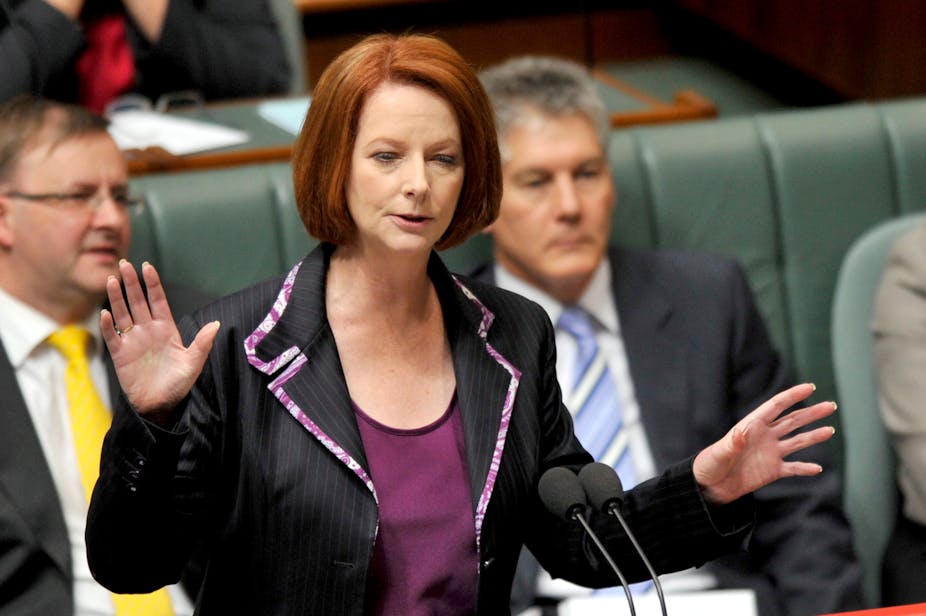The release of figures today showing a dramatic fall in immigration numbers prompts the question of whether certain sections of the media are influencing government policy.
Are Australian politicians allowing media outlets to lead them by the nose on certain issues?
The Conversation spoke with Melbourne University academic Dr Sally Young, author of How Australia Decides and an expert on the relationship between the media and politics.
Has the media led the political debate on immigration rather than the other way around?
In this case the media is leading the immigration debate and has been for some time and that is because the way the system operates in Australia gives some outlets and some organisations a great deal of power over particular issues.
I think the immigration debate is one that tabloids and talkback radio in particular have tried to take some ownership of, that it is a “hot button” issue that matters to their audiences. They have played a driving role in trying to focus the debate and I think they have succeeded to some degree.
Is this an increasing trend? Are corporates like Mining and tobacco companies using the media to affect the debate in away we haven’t seen before?
It is a really worrying aspect of how political debate and media and politics is operating in Australia. Because of the way in which the media operates, I think a number of actors think that they are not getting their message across.
But those with money are choosing, where they can, to advertise to try and influence the debate and unfortunately those who don’t have money don’t have many other options to try and get into the news pages and mainstream media outlets.
It has become even more of an uneven playing field and the amount of money that is being spent on advertising shows that this is becoming a real issue.
Should politicians be braver in facing down the media on emotive issues like immigration?
We would all, those of us who study the Australian media, wish that Australian politician stood up to the media more but it just doesn’t happen. You only have to look at the UK for example with phone hacking and News Corporation to see that there are politicians in some countries that will stand up to the major media organisations, that will hold enquiries, that will push for investigations but in Australia we see that the politicians feel that they are less powerful than some of the media outlets.
That really impacts on the nature of debate and on public policy itself.
Are voters in Australia now more likely to take their political cues from non-politicians, be it Cate Blanchett or Alan Jones, then actual politicians?
I think that has always been true to some degree, that non-politicians have had some influence. But if you look at what someone like John Keane is arguing, that the way democracy is operating now, that non-political actors are going to play more and more of a role. We see a number of people who are getting their views and you can have a great deal of power outside of formal party politics which is an interesting development.
You can get your say up, you get some individuals who are quite media savvy and very good at using the media to get their points of view across, and obviously some corporations as well.
The power balance is shifting in Australian politics and the media have always played a powerful role but in terms of politicians versus media now, I think it is really the media who exercise a great deal of power but are unelected, largely unaccountable and self-regulated.
There are very few avenues to address that power whereas with formal politicians and politics, there are problems there but there are also avenues of address.
We are seeing the balance shift and eventually I think we’ll see the public shift and recognise that media outlets are playing a very strong role will expect some more accountability if they don’t exercise that power responsibly.

